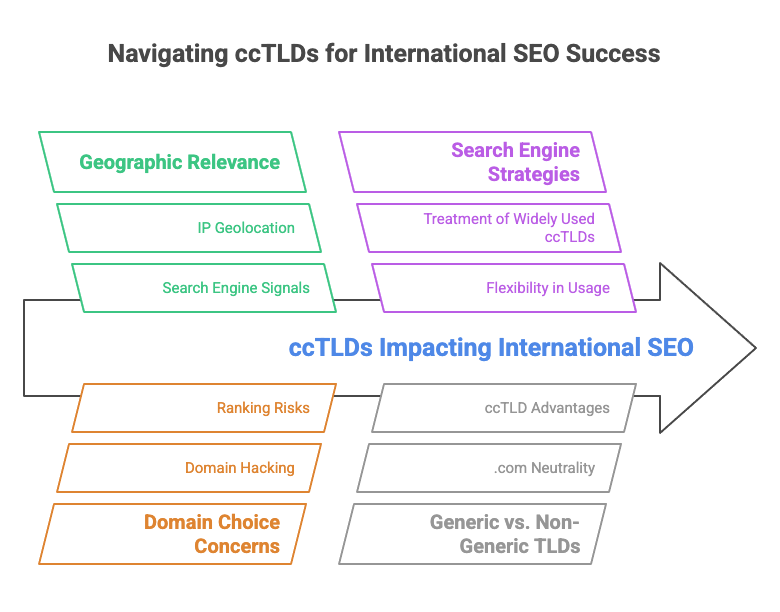Hudson, FL, July 30, 2013 – ASEOHosting, a leading provider of SEO hosting and multiple IP hosting, commented today on the confusion surrounding the use of country code top-level domains for international SEO. SEO experts at the company observed a number of misunderstandings surrounding best practices for the use of ccTLDs and have released a statement to clarify the advantages that they can bring to businesses targeting specific geographical locations with their international search engine optimization.
Understanding Country Code Top-Level Domains (ccTLDs) for International SEO
The Confusion Around Non-Generic TLDs
Choosing Top-Level Domains (TLDs) confuses many people. This often involves country code TLDs like .me (Montenegro), .co (Colombia), and .tv (Tuvalu). These ccTLDs sometimes serve as tools for “domain hacking.” This allows for the creation of catchy web addresses. They can also indicate a site’s focus, for example, .tv for television-related content.However, some worry that using these domains is risky. The concern is that they won’t rank well in international markets. Consequently, this could reduce the chance of ranking in countries outside the TLD’s specific territory.
Expert Opinion on ccTLDs and International Ranking
Daniel Page, Vice President of Customer Relations at ASEOHosting, commented on this issue. He stated, “As a hosting company that specializes in international SEO hosting, we get a lot of questions about how country code TLDs impact search results for international brands.” He further noted, “Domain hacking is popular, and the limited availability of short .com domains encourages using different TLDs. However, companies worry they will be disadvantaged in search engine results pages (SERPs) if they choose a non-generic TLD.”

How Search Engines Determine Relevance
Search engines like Google aim to provide relevant links for user queries. They analyze numerous signals to determine this relevance. One crucial factor is geographic location, which they identify through various means. Among these signals are country code TLDs and the geolocation of IP addresses.
The Strong Signal of ccTLDs
A website using a country code TLD sends a clear signal to search engines. This signal indicates that the site’s content is likely relevant to the geographic area associated with that TLD. For instance, a website with a .jp TLD (Japan) has a higher chance of ranking well in Japan. This is compared to a similar site using a .de TLD (Germany).
Generic Top-Level Domains (.com and others)
Besides ccTLDs, websites can also use generic top-level domains (gTLDs) like .com. These domains don’t offer a specific ranking advantage in any particular country. However, they also don’t create any disadvantage.
Google’s Handling of Widely Used ccTLDs
Google and other search engines understand the usage patterns of ccTLDs that are popular internationally. They treat these widely used ccTLDs similarly to generic TLDs. Therefore, using a widely adopted country code TLD will not negatively impact SEO for those aiming to rank outside of those specific countries.
Flexibility in Using Certain ccTLDs
Google recognizes that some domain names aren’t intended to signal content relevant to a specific country. This is especially true if the websites are hosted on IP addresses in a different country. Website owners can freely use such domains without worrying about a negative impact on their SEO.
####
About Ahosting:
AHosting is a managed web hosting provider with facilities in Orlando, FL, Detroit, MI, and Charlotte, NC, owned and operated by AHosting, Inc., supplying hosting services that are truly beyond imagination. Since 2002, AHosting has established one of the web’s premier solutions for reseller web hosting, multiple IP hosting, dedicated servers, and VPS hosting. For more information, visit http://www.ahosting.net.


